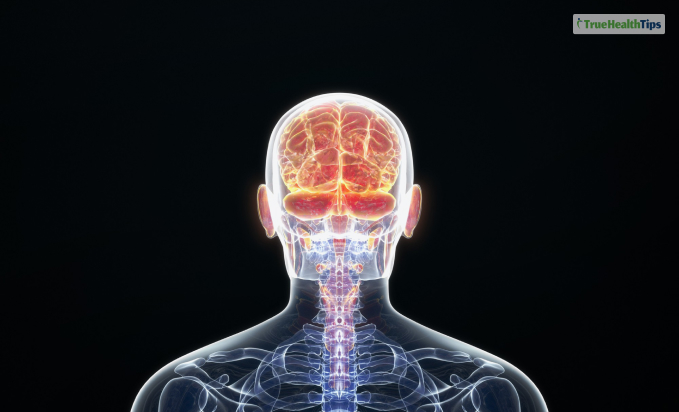
The nervous system, a complex network of nerves and cells that transmit signals between different parts of the body, plays a paramount role in regulating essential functions and responses. However, in some cases, the nervous system can become dysregulated, leading to a range of physical, emotional, and mental challenges. In this article, we unravel the intricacies of what a dysregulated nervous system entails, examine the signs that may indicate its dysregulation, and explore strategies on how to address and restore balance.
What is a Dysregulated Nervous System?

The nervous system can be likened to the control center of the body, managing everything from basic physiological functions to emotional responses. A dysregulated nervous system implies an imbalance in the way the autonomic nervous system (ANS) functions. The ANS consists of the sympathetic and parasympathetic branches, responsible for the body’s “fight or flight” and “rest and digest” responses, respectively.
When the nervous system is dysregulated, the delicate balance between these branches is disrupted. This imbalance can manifest in various ways, affecting physical, emotional, and cognitive well-being. Factors such as chronic stress, trauma, or prolonged exposure to adverse conditions can contribute to nervous system dysregulation.
What Causes a Dysregulated Nervous System?

Understanding the root causes of a dysregulated nervous system is crucial for effective intervention and restoration. Several factors can contribute to the imbalance within the autonomic nervous system:
1. Chronic Stress:
– Prolonged exposure to stressors, whether physical, emotional, or environmental, can overactivate the sympathetic nervous system, leading to persistent states of alertness and tension.
2. Trauma:
– Physical or emotional trauma can leave a lasting impact on the nervous system, disrupting its ability to regulate responses appropriately. Unresolved trauma may contribute to hyperarousal or hypoarousal states.
3. Environmental Factors:
– Exposure to environmental toxins, pollutants, or chronic noise can act as stressors on the nervous system, potentially leading to dysregulation over time.
4. Poor Lifestyle Habits:
– Inadequate sleep, poor nutrition, sedentary behavior, and substance abuse can negatively impact nervous system function. These lifestyle factors may contribute to a heightened stress response.
5. Genetic Factors:
– Genetic predispositions can influence an individual’s susceptibility to nervous system dysregulation. While genetic factors play a role, environmental influences often interact with genetics.
6. Medical Conditions:
– Certain medical conditions, such as autoimmune disorders, chronic pain conditions, or neurological disorders, may impact nervous system function and contribute to dysregulation.
7. Early Life Experiences:
– Adverse experiences during childhood, particularly those affecting attachment and safety, can shape the development of the nervous system. Early life stressors may contribute to a dysregulated stress response later in life.
8. Unresolved Emotional Issues:
– Suppressed emotions or unresolved emotional issues can create ongoing stress within the body, influencing the nervous system’s balance and responsiveness.
9. Neurochemical Imbalances:
– Imbalances in neurotransmitters and hormones can influence nervous system function. Conditions such as anxiety and depression are often associated with alterations in neurochemistry.
Signs of a Dysregulated Nervous System:

1. Hyperactivity or Hypoactivity:
– Hyperactivity in the sympathetic nervous system may result in heightened states of arousal, increased heart rate, and persistent feelings of tension or anxiety.
– Hypoactivity in the sympathetic nervous system can lead to fatigue, low energy levels, and a lack of motivation.
2. Sleep Disturbances:
– Difficulty falling asleep or staying asleep can be indicative of a dysregulated nervous system.
– Nightmares or night sweats may also be present, reflecting disruptions in the body’s stress response.
3. Digestive Issues:
– Dysregulation in the parasympathetic nervous system can impact digestion, leading to issues such as indigestion, bloating, or irregular bowel movements.
4. Mood Swings:
– Fluctuations between periods of intense irritability or anger and moments of emotional numbness or detachment may suggest nervous system dysregulation.
5. Difficulty Focusing:
– A dysregulated nervous system can interfere with cognitive functions, resulting in difficulty concentrating, memory lapses, or mental fog.
6. Heightened Sensitivity:
– Increased sensitivity to stimuli, such as loud noises, bright lights, or crowded spaces, may indicate a hypersensitive nervous system.
7. Muscle Tension and Pain:
– Chronic muscle tension, headaches, or unexplained pain can be physical manifestations of nervous system dysregulation.
Top 9 ways to Fix a Dysregulated Nervous System

1. Mindfulness and Relaxation Techniques:
– Practices such as meditation, deep breathing exercises, and progressive muscle relaxation can help activate the parasympathetic nervous system, promoting a sense of calm and relaxation.
2. Yoga and Gentle Movement:
– Incorporating yoga or other gentle movement practices can be beneficial for regulating the nervous system. These activities combine breath awareness with movement, fostering balance between the sympathetic and parasympathetic branches.
3. Therapeutic Approaches:
– Psychotherapy, particularly modalities like cognitive-behavioral therapy (CBT) and somatic experiencing, can be instrumental in addressing the underlying factors contributing to nervous system dysregulation.
4. Regular Exercise:
– Engaging in regular physical activity, especially aerobic exercise, has been shown to impact the nervous system positively. Exercise promotes the release of endorphins, contributing to improved mood and stress management.
5. Adequate Sleep:
– Prioritizing consistent and sufficient sleep is crucial for nervous system regulation. Establishing a regular sleep routine and creating a conducive sleep environment can support the body’s natural circadian rhythms.
6. Nutrition and Hydration:
– Consuming a balanced diet and staying adequately hydrated are essential for overall well-being, including nervous system health. Nutrient-rich foods support optimal brain function and energy levels.
7. Social Connections:
– Building and maintaining social connections can positively impact the nervous system. Supportive relationships and a sense of community contribute to emotional resilience and stress reduction.
8. Limiting Stimulants:
– Minimizing the intake of stimulants, such as caffeine and nicotine, can help prevent overstimulation of the sympathetic nervous system, supporting a more balanced state.
9. Grounding Techniques:
– Grounding exercises, such as mindful breathing, sensory awareness, or spending time in nature, can help anchor the mind and body in the present moment, reducing feelings of anxiety or overwhelm.
Seeking Professional Guidance:

Addressing a dysregulated nervous system often involves a personalized and multifaceted approach. While incorporating self-care practices can be beneficial, seeking professional guidance is crucial for a comprehensive assessment and targeted interventions. Mental health professionals, including psychologists, counselors, or therapists, can work collaboratively with individuals to explore the underlying factors contributing to nervous system dysregulation and develop tailored strategies for restoration.
What works?
In instances where trauma or chronic stress is a contributing factor, trauma-informed therapies, such as
- Eye Movement Desensitization and Reprocessing (EMDR) or
- trauma-focused cognitive-behavioral therapy, may be recommended.
These therapeutic approaches aim to address the root causes of dysregulation and support individuals in building resilience.
Conclusion
Understanding and addressing a dysregulated nervous system is a journey toward neurological harmony and overall well-being. By recognizing the signs, embracing holistic practices, and seeking professional support when needed, individuals can embark on a path of self-discovery and healing.
A holistic approach that addresses both the underlying causes and incorporates supportive lifestyle changes can pave the way for a more regulated and resilient nervous system.
Do you know another way it can be managed? Comment below!
Read Also:











